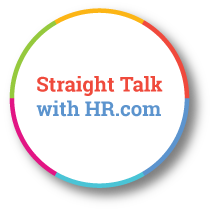‘AI Will Play a Major Role in the Future of HR’
Exclusive interview with Stephen McGorry, Senior HR Business Partner - Americas, Linesight
Posted on 05-22-2024, Read Time: 5 Min
Share:

 |
"AI is coming, and HR professionals need to be ready to integrate it into their work. Otherwise, they risk being left behind and losing their position as strategic partners within their organizations," says Stephen McGorry, Senior HR Business Partner - Americas, Linesight. |

In an exclusive interview with HR.com, Stephen McGorry discusses strategies for evolving HR into a strategic business partner, the transformative impact of AI and automation on HR functions, the prioritization of enhancing the employee experience and much more.
Excerpts from the Interview:
Q: How do you envision the role of HR evolving as a strategic partner to the business?
Stephen: HR is increasingly becoming more of a strategic partnership to the business. The role has been changing from a administrative role to key player in driving organizations key strategic initiatives.Q: What role do you see AI and automation playing in the HR functions of the future?
Stephen: AI is going to become a huge part of HR moving forward. It will allow relatively routine and administratively burdensome work to become automated allowing HR professionals to focus on more strategic initiatives. Add AI to analytics and it will be able to provide insights into employee performance, retention, and engagement to make more informed decisions.You can also create chatbots or virtual HR professionals that can handle routine HR inquiries surrounding policies or questions regarding benefits. AI is coming and HR professionals need to be ready to integrate into their work, or else they run the risk of being left behind and losing their position as a strategic partner within their organizations.
Q: How will enhancing the employee experience be prioritized and executed in the coming years?
Stephen: This will be imperative in order to attract and retain top talent. Employers will need to listen to employees and be prepared to act on things that are important to them. This includes career development opportunities, Flexible work arrangements, employee wellness, and a sense of belonging. Building a strong employer brand and fostering a culture of inclusion and engagement, will ensure employees feel valued and motivated.Q: How is the trend towards remote and hybrid work models affecting HR policies and practices?
Stephen: The change in where employees work has prompted changes in HR policies and practices. Establishing policies that are flexible and can accommodate different work arrangements while ensuring productivity and compliance is going to be key. What a lot of employees don’t realize is their location impacts things behind the scenes, like payroll, taxes, and employment law, so it’s imperative that employers know where people are working.Q: What strategies will be key to fostering and maintaining a strong company culture in a more digital and dispersed workforce?
Stephen:- Strong communication is key to ensuring consistent and transparent communication regarding what is going on within companies
- Recognition Programs - while a simple thank you is always appreciated having a formal recognition program to reward employees is important to make employees who are remote feel a sense of belonging and that their contributions matter
- Leadership engagement- Leaders are visible and engage with employees
- Opportunities to bring people together in person. Especially for new employees the opportunity to meet and bond with people in person is a key factor in retaining talent.
Q: What critical strategies are you implementing to anticipate and prepare for future workforce needs?
Stephen:- Workforce Planning - not only understanding how many people are needed and when, but what skills are required and developing strategies to bridge the gap for skills that are lacking.
- Talent Development - investing in L&D programs to upskill employees and prepare them for future roles.
- Data Analytics - Leveraging data to identify trends, and make informed, data-driven decisions.
Error: No such template "/CustomCode/topleader/category"!

